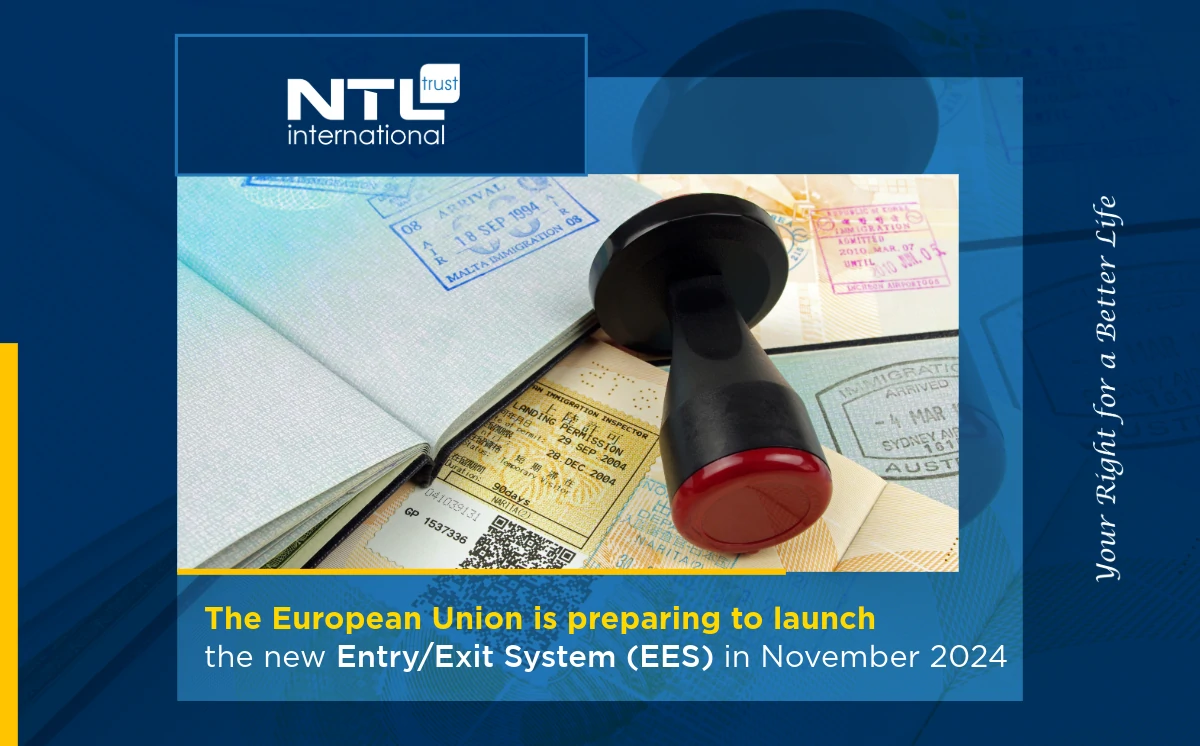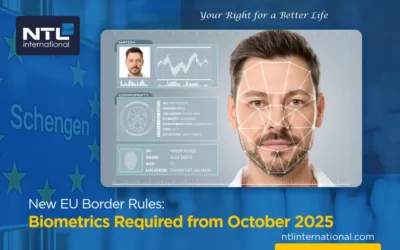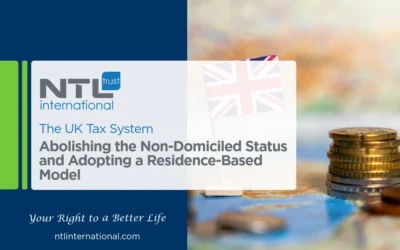
The EU plans to implement the Entry/Exit System (EES) for non-EU citizens starting November 10, 2024. This digital system will replace traditional passport stamps, with travelers’ data recorded electronically upon entering or leaving the Schengen Area. The EES aims to ensure visitors stay within the allowed 90-day stay within 180 days.
The EES will start in November:
Travelers will need to provide fingerprint and facial biometric data during their first entry. Subsequent crossings will be easier, requiring only a passport scan at a self-service kiosk to verify identity. Travelers will also need to register online for free before traveling to the EU.
However, concerns have been raised about potential travel delays due to the new system (EES). The European Commission has proposed a gradual and flexible implementation to reduce waiting times.
This change coincides with the expected launch of the European Travel Information and Authorization System (ETIAS) in 2025, which will require visitors from 60 visa-exempt countries to obtain an entry permit for a fee of €7, valid for three years.
With these changes ( EES), passport stamps may become a thing of the past, raising questions about the loss of personal touch in travel as we move further into the digital age.
Understanding the Nauru CBI Due Diligence Requirements for Secure Second Citizenship
Why Nauru CBI Due Diligence Matters Every reputable Citizenship by Investment (CBI) program depends on a rigorous due diligence process to safeguard its credibility. In the Republic of Nauru, the Nauru CBI due diligence framework forms the backbone of the Climate...
New EU Biometric Border Rules: Fingerprints and Photos Required from October 2025
EU Biometric Border Rules 2025: The EU will introduce the Entry/Exit System in October 2025, requiring fingerprints and photos from non-EU travelers to enhance border security.
The UK Tax System: Abolishing the Non-Domiciled Status and Adopting a Residence-Based Model
The UK tax system will abolish non-dom status from April 2025 and shift to a residence-based model. Learn about exemptions, key deadlines, and planning solutions.
How to Open an Offshore Company in Nauru – Legally and Securely
A complete guide to forming an offshore company in Nauru. Explore the legal framework, taxation rules, setup process, and practical tips for compliance.
Protect Your Green Card: What You Need to Know About Form I-407 in the U.S
A detailed guide to Form I-407 in the U.S. Understand when green card holders may be asked to sign it, the risks of losing residency, and steps to protect your status.





